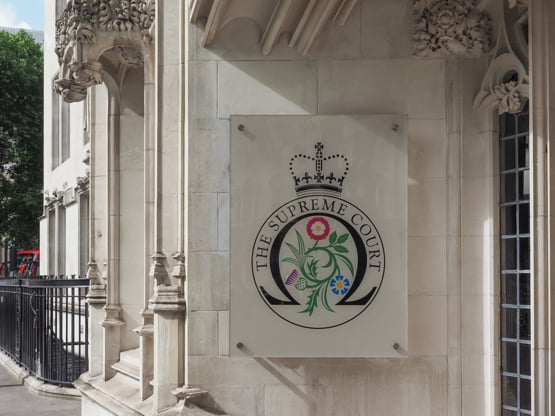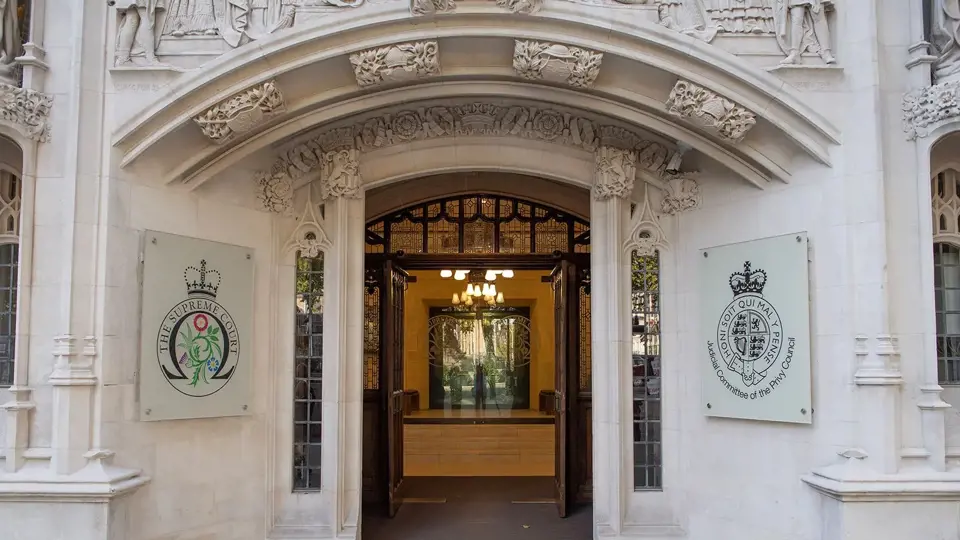The National Franchised Dealers Association (NFDA) today fiercely countered accusations that its members have engaged in bribery for decades at the second day of proceedings in the Supreme Court.
In its Supreme Court intervention today, the organisation which represents the interests of the majority of dealerships in the UK insisted that its members, like any other retailer group, operate with a clear commercial interest which consumers fully understand. .
- The NFDA challenged claims of long-standing bribery within dealerships
- Warned that a failed appeal could redefine the role of dealerships in finance
- Imposing fiduciary duties on credit brokers could trigger financial chaos
The National Franchised Dealers Association (NFDA) today fiercely countered accusations that its members have engaged in bribery for decades at the second day of proceedings in the Supreme Court.
In its Supreme Court intervention today, the organisation which represents the interests of the majority of dealerships in the UK insisted that its members, like any other retailer group, operate with a clear commercial interest which consumers fully understand. .
It argued that dealers are primarily sales businesses, whether selling vehicles, service plans, or financing, and should not be treated the same as regulated financial advisors.
“Nobody goes to a car dealer with a reasonable expectation that it is acting without self interest in relation to any of the products it sells whether that is the car, a roof rack, service and maintenance plans or indeed finance. Consumers expect motor dealers to act commercially in relation to each of those products,” it told Supreme Court judges.
At issue is an appeal brought by lenders Close Brothers, parent of Close Brothers Motor Finance, and FirstRand, which owns MotoNovo Finance, which are seeking to overturn a court of appeal ruling that found that failing to clearly disclose commissions paid to car dealers - and failing to secure consumers’ informed consent - is unlawful.
That ruling focused on common law, equitable principles, and the Consumer Credit Act, rather than FCA regulations and the Supreme Court judgment could have significant implications for the finance industry and their dealership intermediaries which arrange car loans.
The NFDA argued that the previous ruling misinterprets the role of credit brokers, creating an unwarranted fiduciary duty that could destabilise the industry, insisting that dealerships should not be compared to financial professionals
Clarifying the fiduciary role
While acknowledging that a credit broker may be considered a ‘fiduciary’ if they expressly commit to acting on behalf of a customer with undivided loyalty, the NFDA said it strongly opposes the notion that the mere act of credit broking - introducing and facilitating the execution of a finance agreement - automatically creates a fiduciary relationship.
“The judgment makes an error in deriving a fiduciary duty from the nature of a credit broker’s basic tasks. It effectively establishes a new settled category of fiduciary. The danger in allowing the scope of common law duties to develop in leaps and bounds, rather than incrementally, is that it inevitably gives rise to significant uncertainty and instability,” the NFDA stated in its written submission.
The FCA, which is due to make arguments at the court on Thursday, said it too disagreed with the court of appeal’s decision that suggested that dealers had to act in the best interest of borrowers.
“The sweeping approach of the court of appeal in treating motor-dealer brokers as owing fiduciary duties to consumers in the generality of cases goes too far,” the FCA said in its own written submission which noted that treating all brokers as if they had a responsibility to act in a consumer's best interests “would also be at odds with the legislative and regulatory framework”.
 The NFDA also raised concerns about the legal remedies associated with fiduciary breaches. It cited examples where claimants have recently sought cancellation of agreements far exceeding the commission amounts in question. In one of the cases, it notes that the claimant sought to reverse a £9,750 hire purchase agreement over a commission of just £183.26, which had been paid nine years earlier.
The NFDA also raised concerns about the legal remedies associated with fiduciary breaches. It cited examples where claimants have recently sought cancellation of agreements far exceeding the commission amounts in question. In one of the cases, it notes that the claimant sought to reverse a £9,750 hire purchase agreement over a commission of just £183.26, which had been paid nine years earlier.
“Rescission in those circumstances is plainly disproportionate, operates punitively and provides Miss Hopcraft with an unjustified windfall,” it insists.
The NFDA argued that any rigidity in the remedies for bribery may lead to punitive awards and to countless windfall payments. “An illustration of this can be found in a recent motor finance claim in the county court at Exeter in which the claimant now seeks full rescission of a hire purchase arrangement where the commission paid to a credit broker was just a single penny.”
Potential industry-wide impact
If the appeal is dismissed, it warned that the original ruling could have far-reaching consequences for the automotive finance industry with the prospect of retrospective claims, financial turmoil, and an increased compliance burden for dealerships.
“A novel duty that has not been consulted upon by a regulator or digested by Parliament has the capacity to cause havoc within an established commercial order, surprising regulators and threatening financial chaos,” the NFDA told the court.
The NFDA maintains that courts should exercise caution when extending legal obligations. “While the Supreme Court is primarily focused on legal principles rather than economic impact, it should consider the unintended consequences of imposing fiduciary duties on credit brokers,” the NFDA asserted.
Instead, the NFDA advocates for a more balanced approach under the Consumer Credit Act 2006, which allows courts to assess unfairness on a case-by-case basis. “The existing statutory framework already provides borrowers with effective protections. There is no need to impose a rigid fiduciary framework that is ill-suited to credit broking.”
Login to continue reading
Or register with AM-online to keep up to date with the latest UK automotive retail industry news and insight.
















Login to comment
Comments
No comments have been made yet.